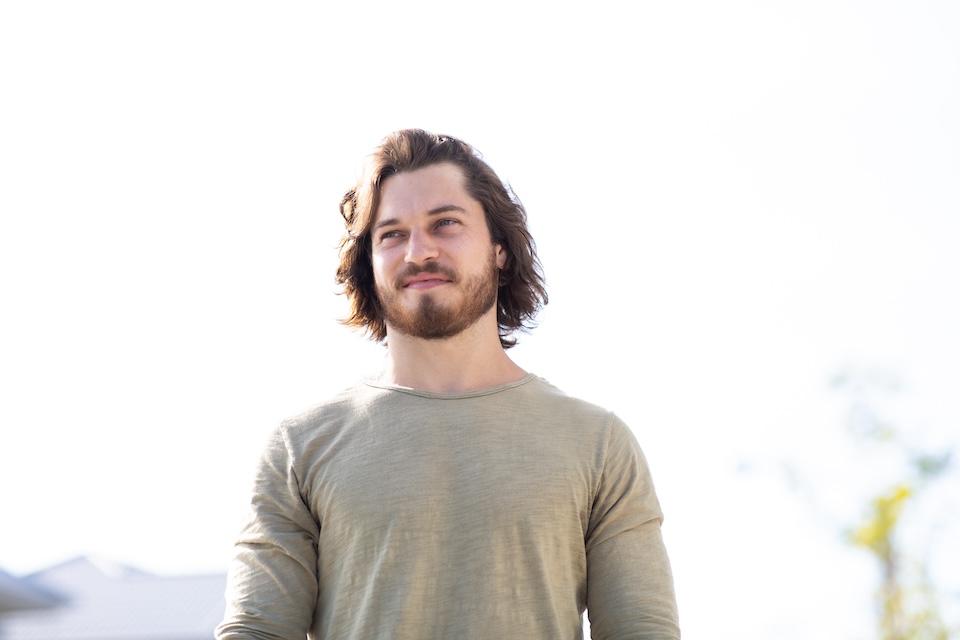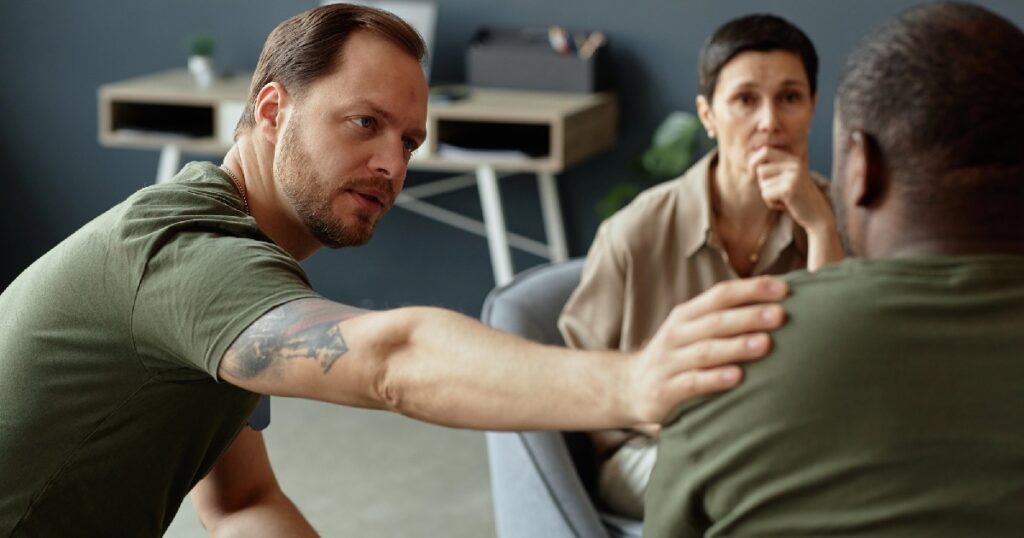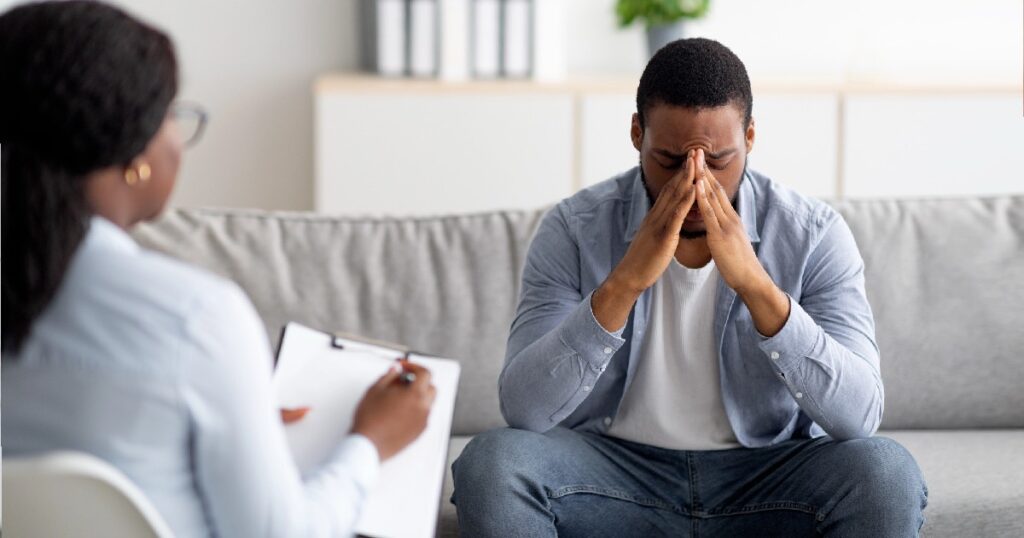About 2,212,000 Americans had a tranquilizer or sedative use disorder in 2021. Klonopin and other benzodiazepines like it fall under this category. That number is the equivalent of almost the entire population of Arizona’s neighbor, New Mexico.
That’s a lot of people who need help, and with opioid use disorder front and center in our country’s battle against overdose deaths, those people can’t be overlooked. That’s especially true if you zoom in even further, and focus on Klonopin specifically.
At Wolf Creek Recovery, we see you. We know living with a benzodiazepine use disorder is difficult, and it might feel like you’re in the dark. You deserve recovery and the attention and individualized treatment that will get you there. Wolf Creek can help.
What We Treat: Klonopin Addiction
Sometimes, benzodiazepine use disorders like Klonopin addiction start with a prescription from your doctor. Maybe you had insomnia or anxiety and took it according to your doctor’s orders at first. Maybe it provided not only relief for those symptoms – but for your emotional pain, too. You might’ve started taking more of it than you were supposed to, and more than you ever meant to.
Maybe you got your Klonopin from a friend or family member, and you never had your own prescription at all. You might’ve been searching for anything to take the edge off how terrible you felt emotionally, and a prescription medication felt safer than something like heroin or cocaine.
Does any of that sound familiar? It’s familiar to us.
The staff at Wolf Creek are also in recovery from substance use disorders, so we know exactly how you feel. We also know exactly what it takes to get better.
How We Treat: What to Expect From Klonopin Rehab at Wolf Creek
When you come to Wolf Creek for care, you’ll undergo an evaluation. We’ll work with you to figure out what individualized treatment plan will be a good fit.
Most people with benzodiazepine use disorders need a detox program, thanks to intense withdrawal. In our trusted referral partners’ medical detox program, skilled medical professionals will watch over you as Klonopin leaves your system to ensure there aren’t any complications – and if there are complications, you’ll be safe and taken care of.
Just getting Klonopin out of your system isn’t all there is to it, though. After that, you’ll come to our facility during the day to work toward recovery and stay at housing provided by Wolf Creek overnight.
At Wolf Creek, you’ll be able to participate in various therapy modalities and activities, all catered to what suits you and your recovery goals the best. Some options are:
- Cognitive behavioral therapy (CBT)
- Dialectical behavioral therapy (DBT)
- Eye movement desensitization and reprocessing (EMDR)
- Motivational interviewing (MI)
- Rational emotive behavior therapy (REBT)
- Family therapy
- Outdoor activities like camping, canoeing, paddleboarding, and team sports

Understanding Klonopin Addiction and What Powers It
Klonopin is usually prescribed for anxiety disorders, panic disorders, seizure disorders, and sometimes, movement disorders. It’s intended to be used short-term, due to how easy it is to become physically dependent on it, and how uncomfortable Klonopin withdrawal can be.
Klonopin activates a neurotransmitter in your brain known as GABA, which is responsible for calming you down. Your body and brain can quickly adapt to Klonopin’s effects. This leads to your brain producing less calming neurotransmitters on its own and is the reason for withdrawal symptoms and tolerance. With tolerance comes the need to take more Klonopin to feel the medication’s original effects, and that can be tricky, especially when combined with the pain of withdrawal.
Physical dependence isn’t the same as addiction. Just because you’re experiencing withdrawal symptoms in between doses or cultivating a tolerance doesn’t mean you’re managing a substance use disorder. Substance use disorders involve both the mind and the body, and your chances of a prescription leading to an addiction are actually very low if you don’t have any risk factors for the condition.
Risk Factors and Causes of Klonopin Addiction
There’s no single factor that guarantees you’ll develop a Klonopin addiction, but there are trends that make it more likely. These are frequent precursors to developing a substance use disorder:
- Genetics
- Family history of substance use disorders
- Early exposure to illicit substance use
- Stress
- Trauma
- Undiagnosed or untreated mental health conditions
- Other substance use

Signs You or a Loved One Need Treatment for Klonopin Addiction
It’s time to ask yourself some questions.
Do you take more Klonopin than you intended to, and now you feel like you can’t stop taking it? Do you take more than your doctor prescribed? Do you experience tolerance, withdrawal, and cravings? Are you dedicating a lot of time to obtaining, taking, and recovering from Klonopin? Are you continuing to take Klonopin even though it’s taking a toll on your health, relationships, and life as a whole?
If you answered yes to any of these questions, it’s a good idea to consider seeking treatment for a potential benzodiazepine use disorder.
If you’re here on behalf of a loved one, there are some things you can look out for in them, too. Do they fixate on Klonopin, and make sure they always have it on hand? Are they secretive about their whereabouts, financial habits, and doctors’ appointments? Are they distancing themselves from friends, family, and activities they once enjoyed? Do they frequently have digestive problems, light and sound sensitivity, numbness in their arms and legs, and sleep a lot? If the answer is yes, you should talk to your loved one about their relationship with Klonopin and encourage them to seek treatment.

Trust Wolf Creek in Arizona With Your Klonopin Addiction Treatment
The cycle of Klonopin addiction can be devastating, but you can take your life back. We hope you’ll take the first step toward recovery and contact us.
Wolf Creek Recovery, located in Prescott, Arizona, focuses on addressing substance use disorders comprehensively. That includes treating any mental health conditions that come with them, as well as learning to recognize triggers and developing the skills necessary to manage life without Klonopin. Call us at 1-833-732-8202, and start building a life you love today.
FAQs
Are there any medications to help with Klonopin withdrawals
There are no FDA-approved medications specifically for Klonopin withdrawal, but it’s safe to take over-the-counter medications within their guidelines to manage symptoms. Contact your doctor if you’re experiencing Klonopin withdrawal so you can develop a plan to address it.











